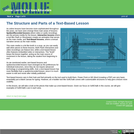
Structure and Parts of a Text-Based Online Lesson
- Subject:
- Education
- Material Type:
- Activity/Lab
- Reading
- Provider:
- AEA Learning Online
- Provider Set:
- OLLIE
- Author:
- Evan Abbey
- Date Added:
- 12/01/2016

Structure and Parts of a Text-Based Online Lesson
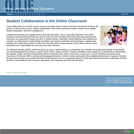
Student Collaboration in the Online Classroom

The purpose of this OER is to examine how pre-adolescent Black males from a rural elementary school in the South who have been identified as “at-risk,” articulated both their current and past schooling experiences. This OER coincides with the book, "Wassup with all the Black Boys Sitting in the Principal's Office" by Dr. Rashad Anderson.This OER helps students understand the interactions and engagements that some elementary Black male students experience with their teachers and other practices within/without the school in which they may have experienced marginalization. As Toldson (2013) contended, Black males early schooling experiences can shape their future academic experiences and social outcomes later in life. Local level classroom experiences play a much larger role in how we evaluate how Black males see school than what is reflected in the literature, in particular, teacher attitudes, interactions, and perceptions (Toldson, 2013).

This module was created in response to an observed need by BranchED and the module authors for efforts to increase the recognition, adaptation, and use of open educational resources (OER) among pre- and in-service teachers and the faculty who work in educator preparation programs. The module's purpose is to position teacher educators, teacher candidates and in-service teachers as empowered content creators. By explicitly teaching educators about content that has been licensed for re-use and informing them about their range of options for making their own works available to others, they will gain agency and can make inclusive and equity-minded decisions about curriculum content. The module provides instructional materials, resources, and activities about copyright, fair use, public domain, OER, and visual literacy to provide users with a framework for selecting, modifying, and developing curriculum materials.
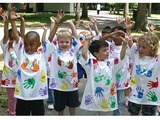
This module contains 3 units to support both pre-service and in-service educators in teaching Culturally and Linguistically Diverse students in the classroom. There are a variety of formats and modalities to present this information. Each unit includes videos, recorded lectures, PowerPoints, guided notes, and research articles to present a wholistic view of the content. The learning is scaffolded by offering application-based activities to allow learners to practice and internalize the content from the first section, and then in the assessment section, the learning is evaluated in a variety of ways that support the learning objectives. There are many supports for both the learner and the student in these units.
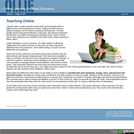
Teaching Online

This lesson is meant for teachers to use during a professional learning session around the science of reading. Teachers will read an article and reflect on it using the "Sentence - Phrase - Word" routine from Making Thinking Visible.

This template has been created by Dr. Valerie Bennett to facilitate the development of OER as instructional materials for teacher education classes.Within this resource are instructions, templates, and examples for using this template to create your own unit(s) for your own classes.
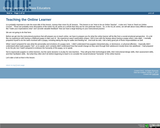
Teaching the Online Learner

This module provides a overview of the power of teaching with a trauma-informed lens. The content was created by the faculty members at the following institutions: Chicago State University, Olive-Harvey Community College, South Subrurban College and Prairie State College. The module was designed to be added to the child development course or other introdcutory educationals course that are taken by education majors. The module was developed by Dr. Ty Jiles, Chicago State University, Professor Mario Wright Olive Harvey, Dr. Donna Walker, South Suburban Collge and Dr. LaTia Collins, Prairie State College. The module is designed to enhance the instructional skills and confidence for pre-service teachers and teacher candidates at minority-serving institutions. The module offers a multicultural narrative as it relates to trauma-informed teaching practices and includes the following: 1) Engaging all students in the learning process, 2) Classroom environment, 3) Planning instruction and learning design for all students, 4) Developing as a professional.
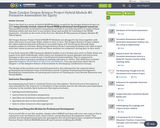
This is the third in a series of Hybrid NGSS Modules curated by the Oregon Science Project in 2017 using already created, research-based NGSS professional development resources. This module focuses on formative assessment and how it can help educators to make student thinking visible and also how to use student ideas and models for teaching in the NGSS classroom. It builds on the work of the first two: Module #1 Phenomena & Equity, Module #2 Talk & Equity.All Oregon Science Project Hybrid NGSS PD Modules are designed to be done together with other educators in real time either online or face-to-face. The Oregon Science Project utilizes the videoconferencing tools of Zoom to run small teams of K-12 educators through these modules online in real time. Some Oregon Science Project Learning Facilitators are able to meet with their teams in person and still use these modules on computers during face-to-face work.It was built using the OER Commons Module builder so it is broken into units as Tasks. Some are meant to be done individually, while others are designed for group dialogue and interaction. Dialogue in this case is used as way to build shared understanding. This is compared to discussion where a group is working on making a decision or choice. This difference is based upon the Adaptive School Work of Garmston and Wellman. You can read more about this in Chapter 4 of the Adaptive School: A Sourcebook for Developing Collaborative Groups. The design of the modules and overall framework is also informed by the research about professional development from A Facilitator's Guide to Online Professional Development: Establishing Communities of Learning and Cultures of Thinking by Carol Brooks Simoneau and Gerald Bailey.Instructor DescriptionsAccompanying each task is a backend "Instructor Description." Each Instructor Description is only intended for the instructor or facilitator of the module and not the educator participating as a learner in the module. Each Instructor Description includesbakckground informationinstructions for facilitator preparationtips/ideas for facilitators working with a group onlinetips/ideas for face-to-face facilitationlinks to other resources when appropriateRemixing and Using this Module for Professional DevelopmentIf you would like to use this module, simply select REMIX and then edit your own copy so that it represents your facilitation style, local context, and professional development needs. This module was developed based upon the assumption that all participants have completed Oregon Science Project Hybrid NGSS Modules #1 and 2 and are studying the NGSS.
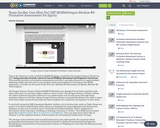
Oregon Science Project Module #3 Facilitator Video OverviewThis is the third in a series of Hybrid NGSS Modules curated by the Oregon Science Project in 2017 using already created, research-based NGSS professional development resources. This module focuses on formative assessment and how it can help educators to make student thinking visible and also how to use student ideas and models for teaching in the NGSS classroom. It builds on the work of the first two: Module #1 Phenomena & Equity, Module #2 Talk & Equity.All Oregon Science Project Hybrid NGSS PD Modules are designed to be done together with other educators in real time either online or face-to-face. The Oregon Science Project utilizes the videoconferencing tools of Zoom to run small teams of K-12 educators through these modules online in real time. Some Oregon Science Project Learning Facilitators are able to meet with their teams in person and still use these modules on computers during face-to-face work.It was built using the OER Commons Module builder so it is broken into units as Tasks. Some are meant to be done individually, while others are designed for group dialogue and interaction. Dialogue in this case is used as way to build shared understanding. This is compared to discussion where a group is working on making a decision or choice. This difference is based upon the Adaptive School Work of Garmston and Wellman. You can read more about this in Chapter 4 of the Adaptive School: A Sourcebook for Developing Collaborative Groups. The design of the modules and overall framework is also informed by the research about professional development from A Facilitator's Guide to Online Professional Development: Establishing Communities of Learning and Cultures of Thinking by Carol Brooks Simoneau and Gerald Bailey.Instructor DescriptionsAccompanying each task is a backend "Instructor Description." Each Instructor Description is only intended for the instructor or facilitator of the module and not the educator participating as a learner in the module. Each Instructor Description includesbakckground informationinstructions for facilitator preparationtips/ideas for facilitators working with a group onlinetips/ideas for face-to-face facilitationlinks to other resources when appropriateRemixing and Using this Module for Professional DevelopmentIf you would like to use this module, simply select REMIX and then edit your own copy so that it represents your facilitation style, local context, and professional development needs. This module was developed based upon the assumption that all participants have completed Oregon Science Project Hybrid NGSS Modules #1 and 2 and are studying the NGSS.Module #3 Components:Task #1 - Module #3 OverviewTask #2 - What is formative assessment? Individual WorkTask #3 - What is formative assessment? Group Reflection and DialogueTask #4- What are some high leverage practices for formative assessment in the NGSS classroom? Individual WorkTask #5 - What are some high leverage practices for formative assessment in the NGSS classroom? Group Reflection and DialogueTask #6 - How can we develop and use culturally responsive formative assessments for NGSS? Individual WorkTask #7 - How can we develop and use culturally responsive formative assessments for NGSS? Group Reflection and DialogueTask #8 - How can we integrate the NGSS practices into assessment tasks? Individual WorkTask #9 - How can we integrate the NGSS practices into assessment tasks? Group Reflection and Dialogue
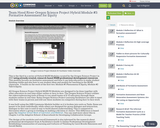
Oregon Science Project Module #3 Facilitator Video OverviewThis is the third in a series of Hybrid NGSS Modules curated by the Oregon Science Project in 2017 using already created, research-based NGSS professional development resources. This module focuses on formative assessment and how it can help educators to make student thinking visible and also how to use student ideas and models for teaching in the NGSS classroom. It builds on the work of the first two: Module #1 Phenomena & Equity, Module #2 Talk & Equity.All Oregon Science Project Hybrid NGSS PD Modules are designed to be done together with other educators in real time either online or face-to-face. The Oregon Science Project utilizes the videoconferencing tools of Zoom to run small teams of K-12 educators through these modules online in real time. Some Oregon Science Project Learning Facilitators are able to meet with their teams in person and still use these modules on computers during face-to-face work.It was built using the OER Commons Module builder so it is broken into units as Tasks. Some are meant to be done individually, while others are designed for group dialogue and interaction. Dialogue in this case is used as way to build shared understanding. This is compared to discussion where a group is working on making a decision or choice. This difference is based upon the Adaptive School Work of Garmston and Wellman. You can read more about this in Chapter 4 of the Adaptive School: A Sourcebook for Developing Collaborative Groups. The design of the modules and overall framework is also informed by the research about professional development from A Facilitator's Guide to Online Professional Development: Establishing Communities of Learning and Cultures of Thinking by Carol Brooks Simoneau and Gerald Bailey.Instructor DescriptionsAccompanying each task is a backend "Instructor Description." Each Instructor Description is only intended for the instructor or facilitator of the module and not the educator participating as a learner in the module. Each Instructor Description includesbakckground informationinstructions for facilitator preparationtips/ideas for facilitators working with a group onlinetips/ideas for face-to-face facilitationlinks to other resources when appropriateRemixing and Using this Module for Professional DevelopmentIf you would like to use this module, simply select REMIX and then edit your own copy so that it represents your facilitation style, local context, and professional development needs. This module was developed based upon the assumption that all participants have completed Oregon Science Project Hybrid NGSS Modules #1 and 2 and are studying the NGSS.Module #3 Components:Task #1 - Module #3 OverviewTask #2 - What is formative assessment? Individual WorkTask #3 - What is formative assessment? Group Reflection and DialogueTask #4- What are some high leverage practices for formative assessment in the NGSS classroom? Individual WorkTask #5 - What are some high leverage practices for formative assessment in the NGSS classroom? Group Reflection and DialogueTask #6 - How can we develop and use culturally responsive formative assessments for NGSS? Individual WorkTask #7 - How can we develop and use culturally responsive formative assessments for NGSS? Group Reflection and DialogueTask #8 - How can we integrate the NGSS practices into assessment tasks? Individual WorkTask #9 - How can we integrate the NGSS practices into assessment tasks? Group Reflection and Dialogue
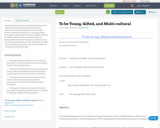
This workshop attempts to merge fundamental issues of gifted education with those of multicultural education, from the perspective of the culturally diverse classroom/community to the global village. Participants will learn some of basics of differentiating for gifted students in both a mainstreamed and honors/gifted classroom. Participants will learn about the under-representation of minority students in gifted classes and honors programs, and study strategies for “closing the achievement gap.”
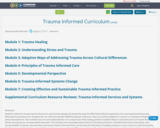
Modules related to trauma-informed practice and systems change developed through the SJSU School Work emphasize active and experiential learning. Although the modules were designed for use with intermediate (MSW program) audiences, they are easily be adapted to courses or trainings for beginning or advanced audiences. The modules may be used independently or in conjunction with existing publicly available didactic materials (see Curriculum Resource Review document for recommended materials). The modules were developed Ryan Pickrell, Principal and Owner of Family Restoration Consulting, with Laurie Drabble, Professor, San Jose State University School of Social Work, and include the following: 1) building resilience in the context of cultural humility, 2) self assessment, 3) adaptive ways of addressing trauma across cultural differences, 4) principles of trauma-informed care, 5) developmental perspectives, 6) trauma-informed systems change, and 7) creating effective and sustainable trauma-informed practice.
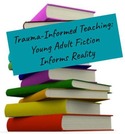
This is a module developed for the Branch Aliance for Educator Diversity Summer Institute to be used as OER/instructional materials for Teacher Education classes. This module provides teacher education course instructors content, activities, and assessments to develop teacher candidates' strategies for supporting students who may have faced or be facing trauma.
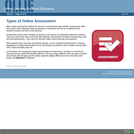
Types of Online Assessment
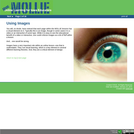
Using Images in Online Learning
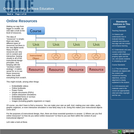
Using Online Resources (Learning Objects)
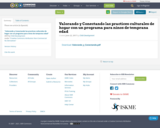
Please see article (in Spanish)